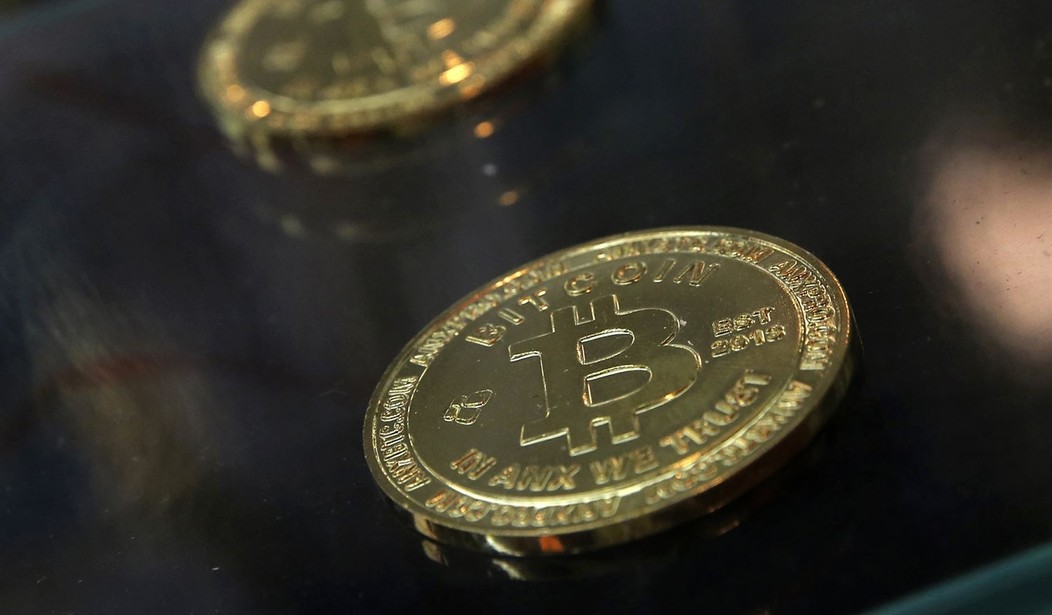Last week, your intrepid reporter embedded himself in the halls of the Ronald Reagan International Trade Center to bring you Townhall’s coverage of the Bitcoin Policy Institute's (BPI) annual summit. Here are three big beautiful takeaways:
1. Bitcoin Support is Bipartisan and Growing
Legislators from both houses and both sides of the aisle were well represented at the summit. Bitcoiners will be familiar with Cynthia Lummis (R-WY) as the stalwart champion of Bitcoin in the Senate, but they may not be as familiar with Senator Marsha Blackburn (R-TN), or Representatives Josh Gottheimer (D-NJ), Zach Nunn (R-IA), and Carol Miller (R-OH). I was extremely impressed with the eloquence and common sense approach of Representative Ritchie Torres (D-NY), wary of over regulating this emerging technology space. House Majority Whip Tom Emmer (R-MN) has been pushing for regularity clarity since 2018 by sponsoring the Blockchain Regulatory Certainty Act (BRCA), recently reintroduced this year alongside Torres. Congressman Nick Begich (R-AK) recounted losing 440 Bitcoin in the collapse of Mt. Gox in 2014, a rite of passage for early Bitcoiners. This event seared the importance of self custody and elimination of trusted intermediaries into the collective psyche of the Bitcoin community (not your keys, not your coins). Whoops and cheers greeted Representative Davidson (R-OH) as he summoned constitutional arguments in defense of private property and Bitcoin as a digital bearer asset. The traction and support that Bitcoin is seeing in Congress today would have eclipsed the expectations of even the most optimistic advocates for financial freedom a few years ago.
Recommended
2. Supporting Bitcoin is a Political Winner
Brent Buchanan of polling firm Cygnal presented survey data showing that 76 percent of Bitcoin owners are more likely to “support a lawmaker who advances policies that make it easier for people to own and use Bitcoin.” Even among the general voting population 43 percent are more likely to support such a candidate – showing how this is a winning political issue. BPI’s Troy Cross emphasized “there is no downside.” On the other hand, cryptocurrency more broadly has a split image among voters, and meme coins have a negative image.
Last year during his campaign, President Trump courted Bitcoiners promising to free Ross Ulbricht, fire Gary Gensler, and establish a Bitcoin Strategic Reserve. So far, Trump has shown to be true to his word, and this has given him a decisive edge among Bitcoiners. Among Bitcoin owners, 59.2 percent respond favorably to Trump, higher than the GOP broadly (54%).
Trump has successfully appealed to Bitcoiners, enlisting them in his coalition, where old guard Republicans have struggled to do so to the same degree. Bitcoiners project to lean Republican in 2026 (54 percent - 40 percent) but not as strongly as they showed up for Trump in 2024 (59 percent - 34 percent).
As Bitcoin continues to eat the monetary premium of other assets, Bitcoiners will become an increasingly important demographic to win in coming elections. According to Cygnal, 30 percent of likely 2026 voters own Bitcoin either directly or in an investment account. Because of Bitcoin's rapid price appreciation, these voters will likely have an outsized impact in campaign finance donations. So far, the GOP has had a first mover advantage in courting these voters but expect the Democrats to distance themselves from the likes of Elizabeth Warren and pursue this demographic in light of the success that Trump had in 2024.
3. Non-Custodial Bitcoin Software is NOT a Money Services Business
The Bank Secrecy Act (BSA) of 1970 defined Money Services Businesses and subjected them to Anti-Money Laundering (AML) and Know Your Customer (KYC) requirements. There is currently ambiguity as to what qualifies as a money transmitter and what is simply infrastructure in the Bitcoin context.
Let’s say hypothetically that Capital One used cloud services provided by Amazon, and internet from Comcast. One would not say that AWS or Comcast are money transmitters even if Capital One relied on them. Capital One is the only money transmitter in this scenario; Amazon and Comcast are merely infrastructure providers. In Bitcoin things get a bit murkier, as developers and companies can provide powerful tools while keeping private keys and ultimate control in the hands of the users.
The general consensus among attendees and speakers at the conference is that the line ought to be drawn at control of funds. If the software or service provider has the ability to redirect funds against the will of the user, then that service provider is an agent acting on behalf of their client, and BSA regulations should apply. If not, then they are simply providing infrastructure. Peter Van Valkenburgh, Director of Coin Center, put it thus, “Applying BSA requirements to peer-to-peer technology is akin to reinstalling phone operators on phone lines for the purposes of collecting information. Collecting information in this way is essentially spying and potentially violating 4th amendment protections.” Regulating open source software as a money transmitter, he argues, will have the effect of ensuring that a money transmitter will appear in the middle of every transaction. This would undo the peer to peer nature that makes Bitcoin such a powerful tool for freedom and self sovereignty.
The interpretation that control of funds is the sine qua non of a money transmitter is consistent with 2019 FinCen guidance, but enforcement actions taken by the Biden era Department of Justice cast a cloud of fear and uncertainty over Bitcoin developers and entrepreneurs. In April of 2024, Keonne Rodriguez and William Lonergan Hill of Samourai Wallet were arrested and charged with conspiracy to commit money laundering. It was later revealed that six months prior to filing charges, prosecutors were told by FinCEN that Samourai Wallet would not qualify as a Money Services Business and thus did not require a FinCEN license. Biden’s DOJ arrested and charged these men anyway and as of this writing they still await trial. The Trump Administration should immediately drop these charges if it wants to end the regime of “regulation by enforcement” and live up to its promise of becoming the Crypto Capital of the world.
Section 110 of the CLARITY Act, currently working its way through the House, codifies non-custodial blockchain service provider protections. It is vitally important that these, or similar protections, be included in legislation or else entrepreneurs will be hesitant to provide the tools, services and capital required to create a liquid, democratized, and free financial system for the 21st century.
Odds and Ends:
-Senator Lummis aims to have Market Structure and Stablecoin Legislation passed by the end of the calendar year. She said she’ll likely wait on Strategic Bitcoin Reserve (BITCOIN Act) legislation until next year.
-Senator Lummis is working on getting a de minimis capital gains exemption for crypto transactions < $600 in the Big Beautiful Bill. This would be massive for Bitcoin adoption by merchants and starting circular economies.
-The Human Rights Foundation highlighted several activists using Bitcoin and crypto to fund efforts for democracy, women’s rights, and humanitarian aid around the world, including Venezuelan opposition leader Leopoldo Lopez.
-Bitcoin mining companies stressed the benefit that miners provide to the power grid. Miners provide flexible loads that can rapidly turn off during energy crises and buyers of last resort to incentivize starting energy projects before energy consumers are in place.
Favorite Quote:
“Bitcoin is a tool for financial freedom, crypto is not. When you say ‘crypto’ what are we talking about? Fartcoin? Let’s be specific.” - Alex Gladstein
Conclusion
America has come to a fork in the road. We can use innovations in technology and finance to surveil our citizens and control them in an Orwellian hellscape using Central Bank Digital Currencies much like China is already doing, or we can embrace tools like cryptography and Bitcoin to protect our privacy and the freedom to keep and move value as sovereign individuals. What I saw from the BPI summit gives me hope… let’s not screw this up.

























Join the conversation as a VIP Member